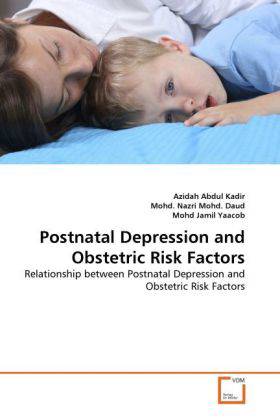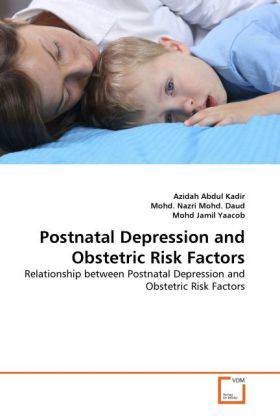
- Afhalen na 1 uur in een winkel met voorraad
- Gratis thuislevering in België vanaf € 30
- Ruim aanbod met 7 miljoen producten
- Afhalen na 1 uur in een winkel met voorraad
- Gratis thuislevering in België vanaf € 30
- Ruim aanbod met 7 miljoen producten
Zoeken
Postnatal Depression and Obstetric Risk Factors
Relationship between Postnatal Depression and Obstetric Risk Factors
Azidah Abdul Kadir, Mohd. Nazri Mohd. Daud, Mohd Jamil Yaacob
Paperback | Engels
€ 48,45
+ 96 punten
Omschrijving
Emotional distress following delivery ranges from the very common, mild and short lived 'baby blues', through postnatal depression, to the more serious but rare condition, puerperal psychosis. Postnatal depression (PND) is a significant health problem affecting 10-15% of mothers.It is increasingly being recognized that PND has important consequences not only for mother and her function in the family, but also for her child. One of the major challenges in dealing with PND is early recognition and many mothers go without much treatment because postpartum mood changes are often not diagnosed.If PND is to be prevented by clinical or public health intervention, its risk factors need to be reliably identified. Obstetric complications were identified as one of the risk factor for PND. This book focused on the study regarding the relationship between PND and obstetric risk factors.
Specificaties
Betrokkenen
- Auteur(s):
- Uitgeverij:
Inhoud
- Aantal bladzijden:
- 76
- Taal:
- Engels
Eigenschappen
- Productcode (EAN):
- 9783639290127
- Uitvoering:
- Paperback

Alleen bij Standaard Boekhandel
+ 96 punten op je klantenkaart van Standaard Boekhandel
Beoordelingen
We publiceren alleen reviews die voldoen aan de voorwaarden voor reviews. Bekijk onze voorwaarden voor reviews.








